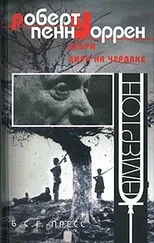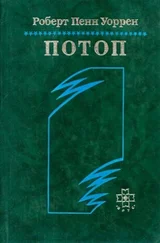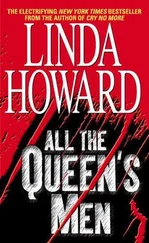Роберт Уоррен - All the king's men
Здесь есть возможность читать онлайн «Роберт Уоррен - All the king's men» весь текст электронной книги совершенно бесплатно (целиком полную версию без сокращений). В некоторых случаях можно слушать аудио, скачать через торрент в формате fb2 и присутствует краткое содержание. Жанр: Современная проза, на английском языке. Описание произведения, (предисловие) а так же отзывы посетителей доступны на портале библиотеки ЛибКат.
- Название:All the king's men
- Автор:
- Жанр:
- Год:неизвестен
- ISBN:нет данных
- Рейтинг книги:4 / 5. Голосов: 1
-
Избранное:Добавить в избранное
- Отзывы:
-
Ваша оценка:
- 80
- 1
- 2
- 3
- 4
- 5
All the king's men: краткое содержание, описание и аннотация
Предлагаем к чтению аннотацию, описание, краткое содержание или предисловие (зависит от того, что написал сам автор книги «All the king's men»). Если вы не нашли необходимую информацию о книге — напишите в комментариях, мы постараемся отыскать её.
All the king's men — читать онлайн бесплатно полную книгу (весь текст) целиком
Ниже представлен текст книги, разбитый по страницам. Система сохранения места последней прочитанной страницы, позволяет с удобством читать онлайн бесплатно книгу «All the king's men», без необходимости каждый раз заново искать на чём Вы остановились. Поставьте закладку, и сможете в любой момент перейти на страницу, на которой закончили чтение.
Интервал:
Закладка:
But afterward, as they walked down the street, she had said, "Why do you live like that?"
"It's what I'm built for, I reckon," Jack Burden said.
"With those people," she said.
"They're all right," he said, and wondered if they were, and wondered if he was.
His mother didn't say anything for a minute, making a sharp, bright clicking on the pavement with her heels as she walked along, holding her small shoulders trimly back, carrying her famished-cheeked, blue-eyed, absolutely innocent face slightly lifted to the pulsing sunset world of April like a very expensive present the world ought to be glad even to have a look at.
Walking along beside him she said meditatively, "That dark-haired one–if he'd get cleaned up–he wouldn't be bad looking."
"That's what a lot of other women think," Jack Burden said, and suddenly felt a nauseated hatred of the dark-haired one, the one who had killed the ant on the sugar bowl, who had the dirty nails. But he had to go on, something in him made him go on, "Yes, and a lot of them don't even care about cleaning him up. They'll take him like he is. He's the great lover of the apartment. He put the sag in the springs of that divan we got."
"Don't be vulgar," she said, because she definitely did not like what id known as vulgarity in conversation.
"It's the truth," he said.
She didn't answer, and her heels did the bright clicking. Then she said, "If he'd throw those awful clothes away–and get something decent."
"Yeah," Jack Burden said, "on his seventy-five dollars a month."
She looked at him now, down at his clothes. "Yours are pretty awful, too," she said.
"Are they?" Jack Burden demanded.
"I'll send you money for some decent clothes," she said.
A few days later the check came and a note telling him to get a "couple of decent suits and accessories." The check was for two hundred and fifty dollars. He did not even buy a necktie. But he and the two other men in the apartment had a wonderful blowout, which lasted for five days, and as a result of which the industrious and unlucky one lost his job and the idle and lucky one got too sociable, and despite his luck, contracted a social disease. But nothing happened to Jack Burden, for nothing ever happened to Jack Burden, who was invulnerable. Perhaps this was the curse of Jack Burden: he was invulnerable.
So Jack Burden lived in the slatternly apartment with the two other graduate students, for even after being fired the unlucky, industrious one still lived in the apartment. He simply stopped paying anything but he stayed. He borrowed money for cigarettes. He sullenly ate the food the others brought in and cooked. He lay around during the day, for there was no reason to be industrious any more, ever again. Once at night, Jack Burden woke up and thought he heard the sounds of sobs from the living room, where the unlucky, industrious one slept on a wall bed. Then one day the unlucky, industrious one was not there. They never did know where he had gone, and they never heard from him again.
But before that they lived in the apartment, in an atmosphere of brotherhood and mutual understanding. They had this in common: they were all hiding. The difference was in what they were hiding from. The two others were hiding from the future, from the day would get degrees and leave the University. Jack Burden, however, was hiding from the present. The other two took refuge in the present. Jack Burden took refuge in the past. The other two sat in the living room and argued and drank or played cards or read, but Jack Burden was sitting, as like as not, back in his bedroom before a little pine table, with the notes and papers and books before him, scarcely hearing the voices. He might come out and take a drink or take a hand of cards or argue or do any of the other things they did, but what was real was back in that bedroom on the pine table.
What was back in the bedroom on the pine table?
A large packet of letters, eight tattered, black-bound account books tied together with red tape, a photograph, about five by eight inches, mounted on cardboard and stained in its lower half by water, and a plain gold ring, man-sized, with some engraving in it, on a loop of string. The past. Or that part of the past which had gone by the name of Cass Mastern.
Cass Mastern was one of the two maternal uncles of Ellis Burden, the Scholarly Attorney, a brother of his mother, Lavinia Mastern. The other uncle was named Gilbert Mastern, who died in 1914, at the age of ninety-four or -five, rich, a builder of railroads, a sitter on board of directors, and left the packet of letters, the black account books, and the photograph, and a great deal of money to a grandson (and not a penny to Jack Burden). Some ten years later the heir of Gilbert Mastern, recollecting that Jack Mastern, with whom he had no personal acquaintance, was a student of history, or something of the sort, sent him the packet of letters, the account books, and the photograph, asking if he, Jack Burden, thought that the enclosures were of any "financial interest" since he, the heir, had heard that libraries sometimes would pay a "fair sum for old papers and antebellum relics and keepsakes." Jack Burden replied that since Cass Mastern had been of no historical importance as an individual, it was doubtful that any library would pay more than a few dollars, if anything, for the material, and asked for instructions as to the disposition of the parcel. The heir replied that under the circumstances Jack Burden might keep the things for "sentimental reasons."
Jack Burden made the acquaintance of Cass Master, who had died in 1864 at a military hospital in Atlanta, who had been only a heard but forgotten name to him, and who was the pair of dark, wide-set, deep eyes which burned out of the photograph, through the dinginess and dust and across more than fifty years. The eyes who were Cass Mastern, stared out of a long, bony face, but a young face with full lips above a rather thin, curly black beard. The lips did not seem to belong to that bony face and the burning eyes.
The young man in the picture, standing, visible from the thighs up, wore a loose-fitting, shapeless jacket, too large in the collar, short in the sleeves to show strong wrists and bony hands clasped at the waist. The thick dark hair, combed sweepingly back from the high brow, came down long and square-cut, after the fashion of time, place, and class, almost to brush the collar of the coarse, hand-me-down-looking jacket, which was the jacket of an infantryman in the Confederate Army.
But everything in the picture in contrast with the dark, burning eyes, seemed accidental. That jacket, however, was not accidental. It was worn as the result of calculation and anguish, in pride and self-humiliation, in the conviction that it would be worn in death. But the death was not to be that quick and easy. It was to come slow and hard, in a stinking hospital in Atlanta. The last letter in the packet was not in Cass Mastern's hand. Lying in the hospital with his rotting wound, he dictated his farewell letter to his brother, Gilbert Mastern. The letter, and the last of the account books in which Cass Mastern's journal was kept, were eventually sent back home to Mississippi, and Cass Mastern was buried somewhere in Atlanta, nobody had ever known where.
It was in a sense, proper that Cass Mastern–in the gray jacket, sweat-stiffened, and prickly like a hair shirt, which it was for him at the same time that it was the insignia of a begrudged glory–should have gone to Georgia to rot slowly to death. For he had been born in Georgia, he and Gilbert Mastern and Lavinia Mastern, in the red hills up toward Tennessee. "I was born," the first page of the first volume of the journal said, "in a log cabin in north Georgia, in circumstances of poverty, and if in later years I have lain soft and have supped from silver, may the Lord not let die in my heart the knowledge of frost and of coarse diet. For all men came naked into the world, and in prosperity 'man is prone to evil as he sparks fly upward,' " The lines were written when Cass was a student at Transylvania College, up in Kentucky, after what he called his "darkness and trouble" had given place to the peace of God. For the journal began with an account of the "darkness and trouble"–which was perfectly real trouble, with a dead man and a live woman and long nail scratches down Cass Mastern's bony face. "I write this down," he said in the journal, "with what truthfulness a sinner may attain unto, that if ever pride is in me, of flesh or spirit, I can peruse these pages and know with shame what evil has been in me, and may be in me, for who knows what breeze may blow upon the charred log and fan up flame again?"
Читать дальшеИнтервал:
Закладка:
Похожие книги на «All the king's men»
Представляем Вашему вниманию похожие книги на «All the king's men» списком для выбора. Мы отобрали схожую по названию и смыслу литературу в надежде предоставить читателям больше вариантов отыскать новые, интересные, ещё непрочитанные произведения.
Обсуждение, отзывы о книге «All the king's men» и просто собственные мнения читателей. Оставьте ваши комментарии, напишите, что Вы думаете о произведении, его смысле или главных героях. Укажите что конкретно понравилось, а что нет, и почему Вы так считаете.





![Роберт Уоррен - Рассказы [Компиляция]](/books/419993/robert-uorren-rasskazy-kompilyaciya-thumb.webp)


